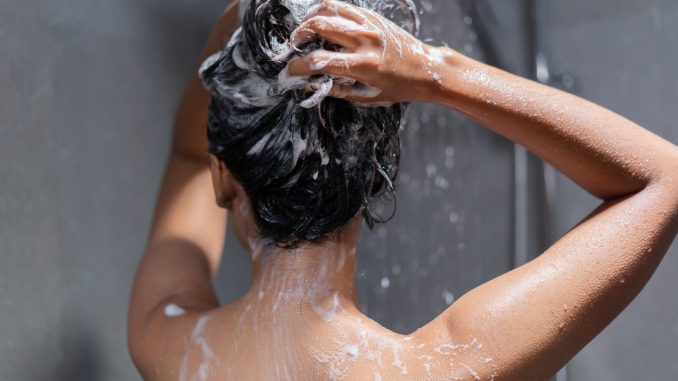
Baking soda, also known as sodium bicarbonate, is a versatile household ingredient with a wide range of uses, from baking and cleaning to personal care. In recent years, the practice of adding a little baking soda to shampoo has gained popularity as a DIY hair care hack. Advocates claim that it can enhance the effectiveness of shampoo, improve scalp health, and even promote hair growth. But what’s the science behind this practice, and is it really beneficial for your hair? Let’s explore the effects of adding baking soda to shampoo in detail.
The Science Behind Baking Soda:
Baking soda is an alkaline substance, meaning it has a high pH level. Shampoos, on the other hand, are typically slightly acidic to help maintain the natural pH of the scalp and hair. The pH balance of your scalp is crucial for overall hair health, as it affects the condition of the hair cuticle and the scalp’s microbiome.
The Claims and Potential Effects:
- Cleansing Properties: Baking soda is known for its ability to cut through grease and grime, which has led to the belief that adding it to shampoo can enhance its cleansing power. While baking soda can indeed help remove oil and buildup, using it in excess or too frequently can disrupt the scalp’s natural pH and strip away essential oils, leading to dryness and potential irritation.
- Exfoliation: Advocates of the baking soda and shampoo combo often claim that it can exfoliate the scalp, helping to remove dead skin cells and promote a healthier scalp. While gentle exfoliation can be beneficial, using baking soda for this purpose may be too abrasive and could cause microtears on the scalp.
- Hair Softening: Baking soda’s alkaline nature could potentially open up the hair cuticle, making the hair shaft more receptive to conditioning agents. However, this effect might not be uniform across all hair types, and excessive use could lead to brittle and dry hair.
- pH Imbalance: As mentioned earlier, the pH balance of the scalp is crucial. Adding baking soda to shampoo can disrupt this balance and potentially lead to various scalp issues, including dandruff, itchiness, and even inflammation.
- Hair Growth: There is limited scientific evidence to support the claim that baking soda directly promotes hair growth. Hair growth is influenced by various factors, including genetics, diet, and overall scalp health.
Potential Risks and Considerations:
- pH Disruption: The most significant concern when adding baking soda to shampoo is the potential disruption of the scalp’s pH balance. This disruption can lead to a host of issues, including dryness, oiliness, and increased susceptibility to infections.
- Hair Damage: The abrasive nature of baking soda particles can cause physical damage to the hair cuticle and scalp, leading to increased hair breakage and irritation.
- Allergic Reactions: Some individuals may be sensitive or allergic to baking soda. A patch test is advisable before applying any new mixture to the scalp or skin.
A Balanced Approach:
If you’re curious about experimenting with baking soda and shampoo, it’s essential to approach it cautiously and with moderation. Here are a few tips to keep in mind:
- Dilution: If you choose to mix baking soda with shampoo, dilute it well to minimize its impact on the shampoo’s pH.
- Infrequent Use: Limit the use of the baking soda mixture to once in a while rather than making it a regular part of your hair care routine.
- Gentle Application: Be extremely gentle when applying the mixture to your scalp to avoid abrasions.
- Moisturizing: Follow up with a conditioner to help restore moisture to the hair after using baking soda.
Consult a Professional:
Before experimenting with any DIY hair care methods, it’s wise to consult a dermatologist or a hair care professional, especially if you have specific scalp conditions or concerns. They can provide personalized advice based on your hair type and needs.
In conclusion, while adding baking soda to shampoo may have some potential benefits, it also carries significant risks. The delicate pH balance of your scalp and the potential for scalp irritation or damage should not be overlooked. As with any beauty trend, a cautious and informed approach is crucial to ensure the health and vitality of your hair and scalp.
Share this:
- Click to share on Facebook (Opens in new window)
- Click to share on Twitter (Opens in new window)
- Click to share on WhatsApp (Opens in new window)
- Click to share on Reddit (Opens in new window)
- Click to share on Telegram (Opens in new window)
- Click to share on Pinterest (Opens in new window)
- Click to share on LinkedIn (Opens in new window)